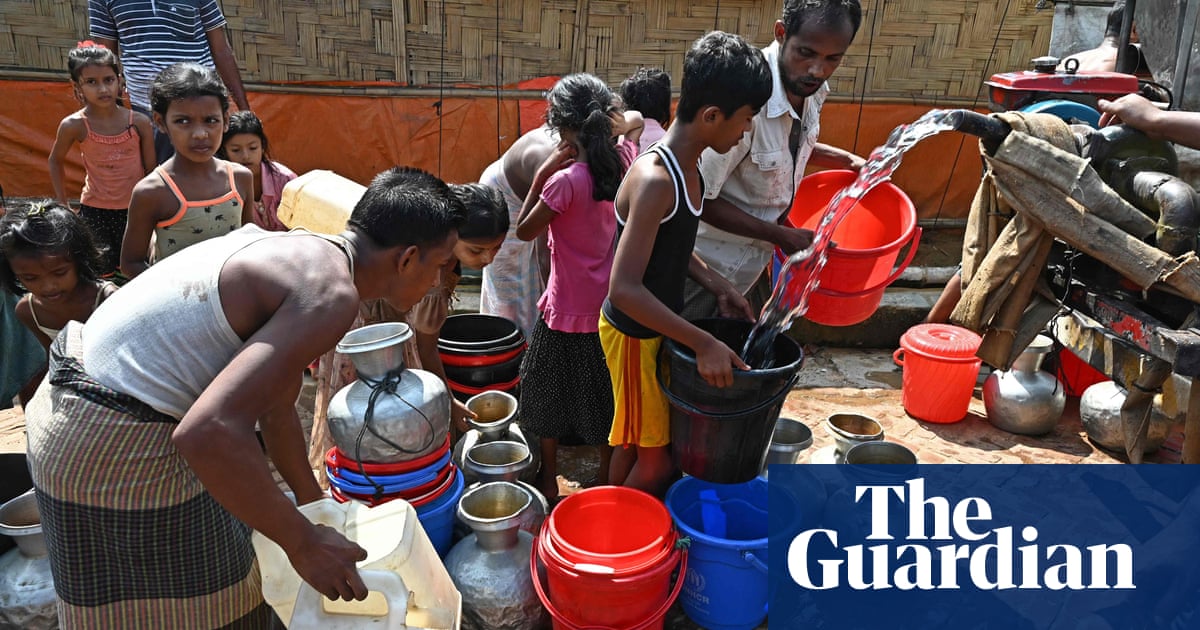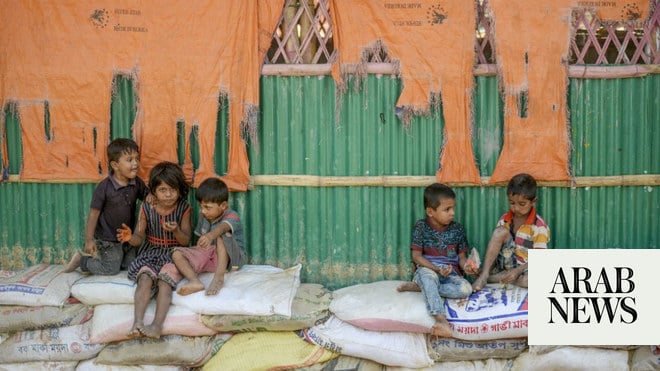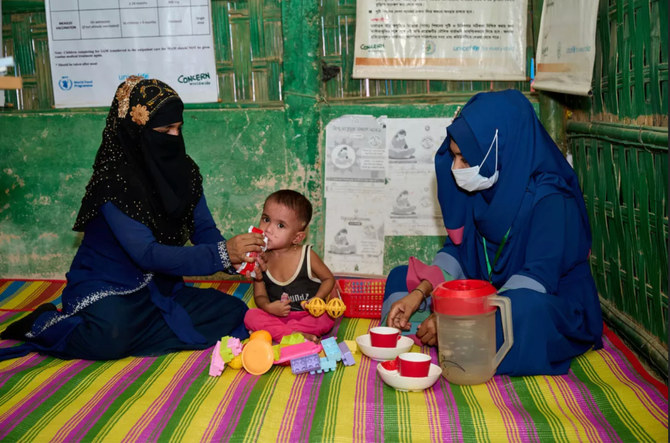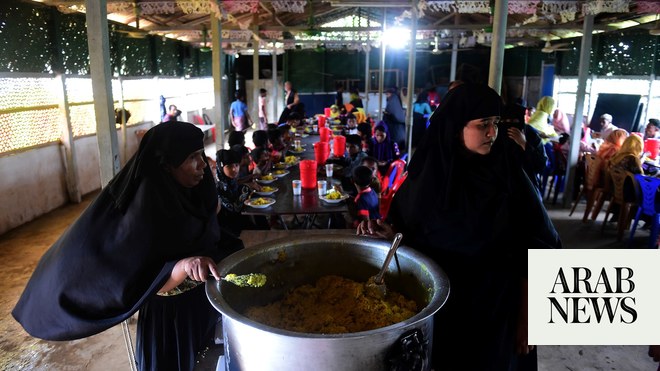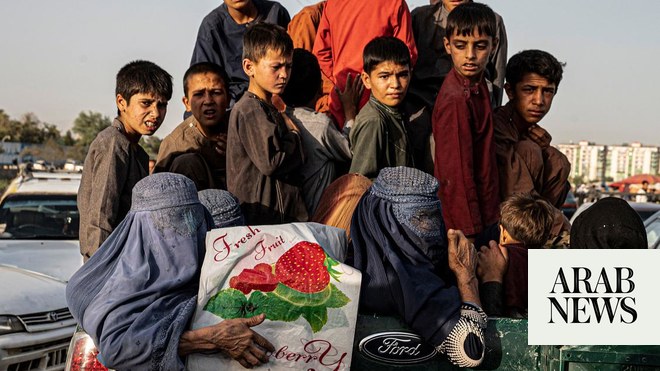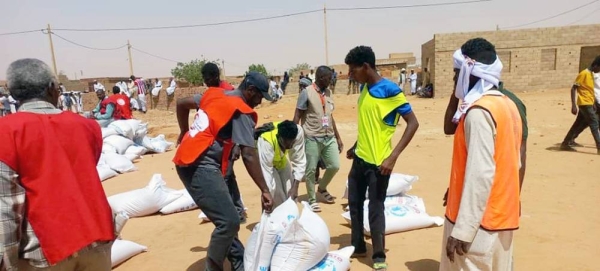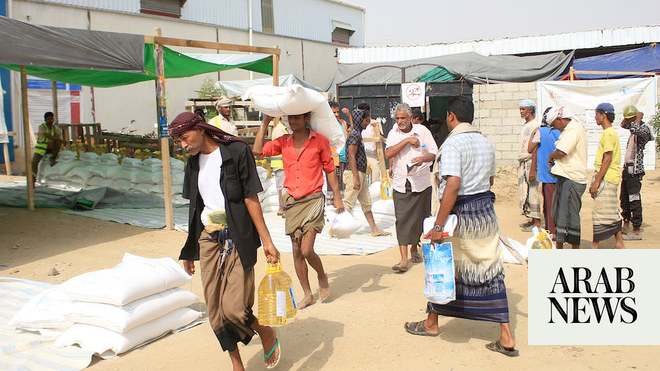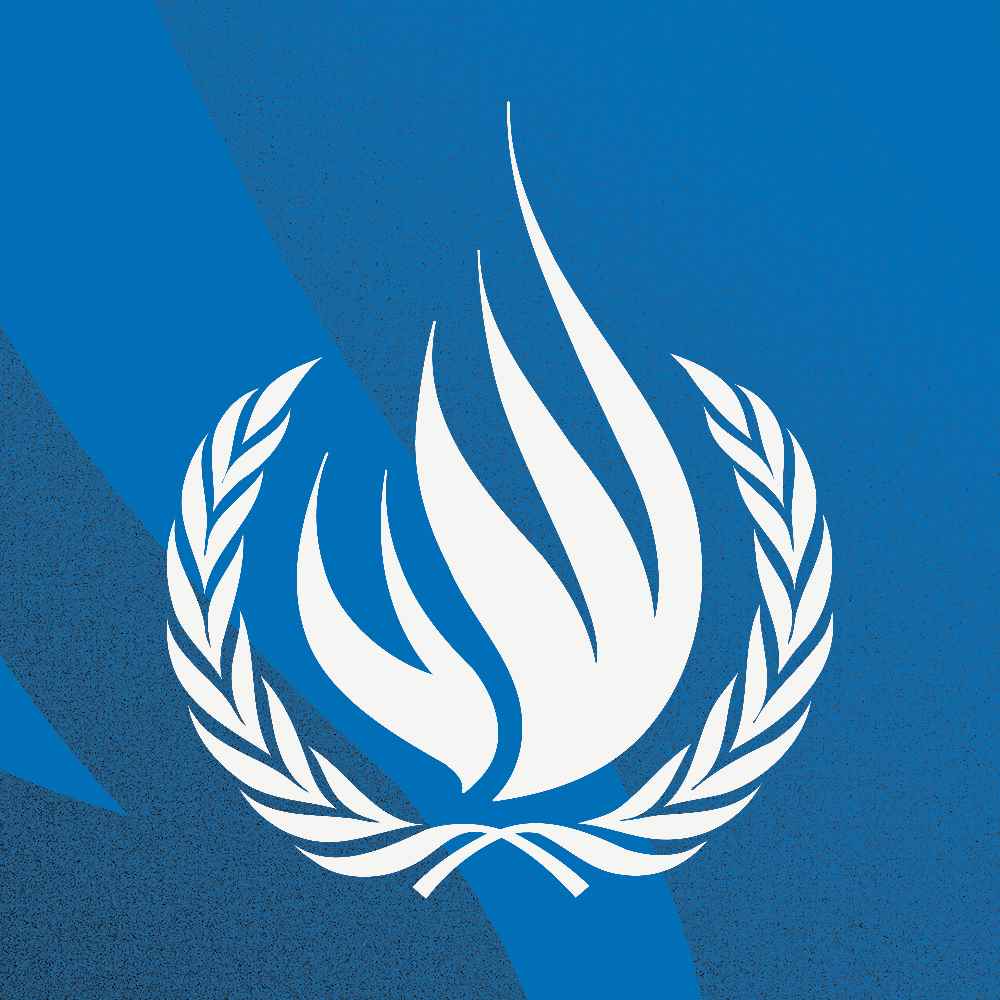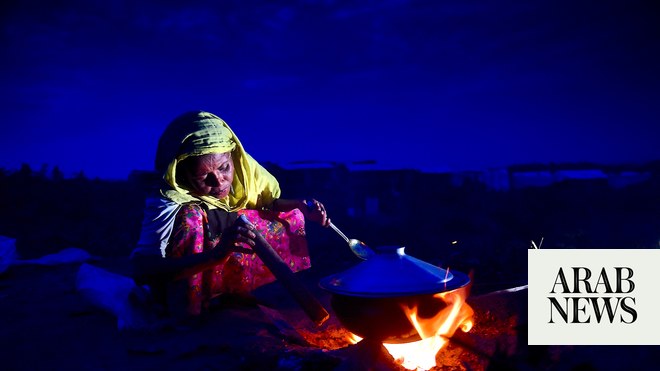
WFP to cut food aid for 1 million Rohingya in Bangladesh to $8 per month
Value of food assistance reduced more than 33 percent since March
DHAKA: Rohingya refugee mothers living in Bangladeshi camps are fearing hunger and health complications for their already malnourished children as the World Food Programme will further decrease their rations next month — after already cutting them earlier this year.
The WFP announced earlier this week that a lack of funding will force it to cut food aid for around 1 million Rohingya starting June 1.
This will be the second time in three months that the UN agency slashes food aid for the refugees sheltering in Bangladesh. With the new cuts in place, the value of food assistance will be reduced from $12 to $8, or more than 33 percent since March.
Many Rohingya families, especially those where mothers are the sole breadwinners, are entirely dependent on aid. Kowsar Begum, 40, who lost her husband several years ago, has already been struggling since the first reductions.
“It has become very tough to feed the children three proper meals in a day. I am worried about how I will manage the food for my children with the new cuts from next week,” the mother of six told Arab News over the phone from Cox’s Bazar, which has been home to most of the Rohingya who escaped deadly violence and persecution in neighboring Myanmar during a military crackdown in 2017.
“All of my children are suffering from malnutrition. They look very skinny,” Begum said. “As a mother, it’s unbearable for me to look at their faces.”
Malnutrition is already a problem in the cramped camps, where international aid for the Rohingya has been decreasing since 2020.
The rations currently provided to the Rohingya are already insufficient and further reductions would pose grave health problems for the refugee population. Already before the first cuts, UN special rapporteurs warned that the Rohingya refugee population in Bangladesh was food insecure, with more than a third of children stunted and underweight.
Dr. Abu Toha, health coordinator at the Refugee Relief and Repatriation Commission in Cox’s Bazar told Arab News that with the further cuts, malnutrition among the Rohingya will soar.
“It will trigger an increase in malnutrition-related diseases. Eventually, the immunity of these people will also be reduced,” he said.
“We have been doing some programs targeting malnourished children, which offered extra nutritional support…If the funds are cut, this sort of program will definitely be hampered in the coming days.”
Bangladesh is not a signatory to the 1951 UN Refugee Convention and the Rohingya it is hosting cannot be legally employed to earn their livelihood.
Supporting the refugees already costs Bangladesh an estimated $1.2 billion a year — a sum the developing country is also struggling to afford.
“We are economically not that solvent to feed more than a million…We have limitations,” Toha said. “If the Western world would curtail some of their military expenses, we could feed thousands of refugees here properly.”
The current monthly WFP food aid is already insufficient for refugees to survive even half a month.
“The aid I receive from WFP is sufficient to run the food expenses for 10 days out of the month,” said Shekutara Begum, a 30-year-old homemaker who has been the sole breadwinner for her family of five since her husband fell sick.
“The cut in the food budget was a double blow to me. On one hand, I have to manage food for the family. On the other, I need to manage funds for my husband’s medication…My children cannot expect a good meal even once a month.”
Begum feared that constant and worsening deprivation will affect the young generation of Rohingya growing up in Cox’s Bazar, increasing child labor and their future involvement in criminal activity.
Her concerns were shared by prominent Bangladeshi rights activist Mohammed Nur Khan.
“Children are suffering on a big scale,” he said, adding that their psychological development would also be impacted by the small food budget.
“I appeal to the international community to play a more active role so that these Rohingya may be provided with food support like before. Otherwise, these populations will not be able to lead a life with even minimum rights.”




